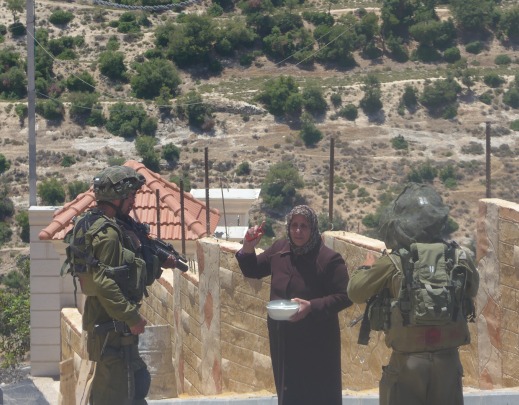Tag: House raid
-
House raids in Hebron
15th June 2014 | International Solidarity Movement, Khalil Team | Hebron, Occupied Palestine At approximately 3AM this morning, approximately 70 Israeli soldiers broke into a home inhabited by two Palestinian families. The home is located in the H1 region of Hebron, an area officially under full Palestinian authority, civil and security control. The two families, composing of 10 people,…
-
Assaults and home invasions in Qeitun
11th June 2014 | International Solidarity Movement, Khalil team | Hebron, Occupied Palestine This evening, at approximately 19:00, Israeli soldiers broke into several Palestinian family’s homes in the Qeitun region of al-Khalil, following clashes with local youth, which began an hour earlier. The soldiers’ broke into the first home, only speaking in Hebrew, they then beat the father of…
-
Soldiers invade two Palestinian houses – for training only
25th July 2013 | International Solidarity Movement, Team Khalil | Hebron, Occupied Palestine Last night, Israeli occupation soldiers invaded two houses in Tel Rumeida, Hebron, one being the Sumud house and the headquarters of the Palestinian human rights organisation Youth Against Settlements. At 21:15 pm three groups consisting of four Israeli soldiers each invaded the…



